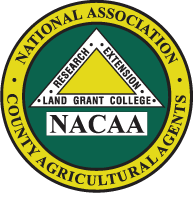UNDERSTANDING EQUINE EXTENSION NEEDS AND PERCEPTIONS OF EXTENSION IN THE HORSE CAPITOL OF THE WORLD, MARION COUNTY, FLORIDA
Pittman, T.1; Bainum, C.21Ag & Natural Resources Agent, UF/IFAS Extension, Gilchrist, FL, 32693
2Livestock Agent, UF/IFAS Extension, Ocala, FL, 34470
Abstract:
Marion County, Florida is arguably the horse capitol of the work and home to hundreds of equine breeds and disciplines. With such a high density of horses, horse owners, and horse farms combined with the environmental challenges face in Florida today, Marion County has unique needs for equine extension programming. To better understand these needs and provide extension programming that addresses the needs of horse owners and natural resource managers we conducted a needs assessment survey of horse farm owners in the Marion County equine community. We surveyed 77 farm owners using a Likert based survey on 30 equine topics combined with more pointed questions on equine Best Management Practices (BMPs) to address environmental concerns and general perceptions of extension assistance. We found in general horse farm management was identified as the most useful to farm owners with 8 of the 10 highest rated topics. Of these 8 topics a general theme was identified of pasture management while the other two topics in the top ten were selection of hay varieties and diseases/infection. In contrast the highest ranked environmental topic on our list was 22nd, with all other environmental specific topics ranking below that in the bottom third. When asked about BMPs specifically, 48% of farm owners were unaware of what BMPs were, 47% indicated they implement BMPs but are not formally enrolled in a program, and only 1% indicated their farm is formally enrolled in a BMP program. When asked if they would accept assistance from extension to implement and enroll in an Equine BMP program only 31% indicated they would accept this assistance. Our finding indicate that equine extension programming may have the highest interested when focused on topics related to pasture management but programs solely based on those topics might fall short in creating impacts and behavioral changes that will address environmental issues. Programming that focuses on changing the perception of horse farm owners to BMPs and being proactive about environmental issues are a necessary first step to obtaining behavioral change in horse farm owners.
